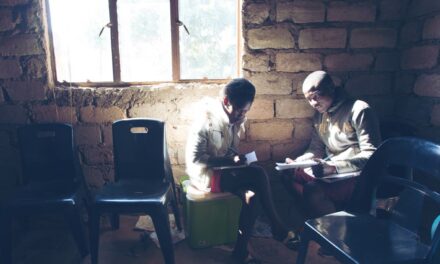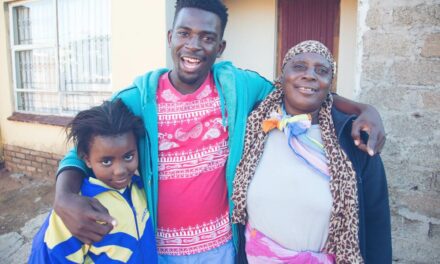The magazine Christian Century for years had a column called “How my mind has changed.” (http://www.christiancentury.org/category/keywords/how-my-mind-has-changed) In it, authors reflect some years later on a book or article they have written. Here are some initial thoughts I have had about this article, originally written a few years after moving into our neighborhood in LA
(“What Does it Mean to be Incarnational when we are not the Messiah.” From God So Loves the City: Seeking a Theology for Urban Mission. Now published by Wipf and Stock)
Overall, one surprise is perhaps that much of the article still resonates with me. These are themes that have been with me for over 20 years now. They take different forms over the years, they evolve as we grow older, but they remain. In fact, over the years I have come to realize even more how my own brokenness and ego can get in the way of what God is doing. How do the themes resonate with you (or not)?
Incarnation as method:
John Hayes writes that incarnation is our method, and that is also what this chapter suggests. We do not minister from a distance but desire to be there with our neighbors. We do not become our neighbors, but we live in solidarity, and identify in various ways with our neighbors.
The term “Incarnational”
Over the years, I have gotten good feedback on the article. The main negative feedback I have gotten is over the term “incarnational.” (Note we are not talking
about the method, only the word/term) Teaching in a diverse place like Fuller, it becomes clear how differently people hear a word. When I have used “incarnational,” the African American and other students of color sometimes protest, wondering if I am being paternalistic or arrogant, asking “So is it only the while people who get to live out Phil 2 in this way? ” Once we talk it through, they can see what I mean, but it something seems that the word can get in the way in some contexts.
I personally do not use the word much anymore, unless I am with people who I know will understand it as I mean it. Teaching in a seminary, I have come to realize that this word is a rich and complex theological term, and is understood in a variety of ways. Journal articles and books have been written about this concept. Thus I have decided it is best not to use the term, as I am not sure what people will hear when I use it. Communication is about understanding, thus I want to use words that people understand.
I do like John Perkins term, relocation. I have relocated. It describes the situation pretty well. I also like the term neighboring. The scriptures call us to love our
neighbors and we have relocated so that the neighbors we live near and love are not the ones that we otherwise would have as our neighbors. I find that when I speak in a church, or talk to my neighbors, these terms communicate more closely what I intend.
Scott Bessenecker does use the term incarnational as one of the five signs of the New Friars, so clearly there are many way to think about this. I encourage you to discuss this on your teams and to use the language that communicates well for you.
Emerging Local Leaders:
No mention is made in the article of the role of emerging local leaders. Although that was not the intent of this article, it is worth mentioning as we think of what it means to point the way rather than be in the way. One of the best ways to be sure we are not in the way of a movement is the raising up of neighbors as leaders in our neighborhoods. (I use local leaders in its broader sense here, not only leaders who join InnerChange but who become leaders in their communities.)
This was brought home to me a week or so ago through Roxy.
When Roxy was in middle school, the LA team sometimes would take the youth to visit the local (neglected) convalescent homes. A week ago, Roxy, who is now a middle school teacher in a tough school in LA, took a group of her students to visit a local convalescent home. I thought about going with her but decided against it. When she returned, she was glowing from the hours they had spent there. Some of the residents had not had visitors for a long time, and they certainly had not had a group of middle school children visit. Some smiled for the first time in a long while. A few of the residents told them part of their life stories. The children gained perspective on their own life struggles. The home was graced with life and love for those few hours, and the generations were brought together. Roxy sensed God’s presence with them as they “visited the stranger.After hearing her story, I realized that I indeed would have been in the way in this case. It was her turn to lead. And she did an amazing job.
InnerChange as Order:
One other theme that strikes me as I read this again is the individualism that runs underneath it. I do mention the need for faith community, but do not talk about the need for community as a way to sustain incarnational life with the poor. I am a recovering individualist – it is deep in my generation and culture.
This was written just as the LA team joined InnerChange, and before much was being said about order. Now I see order as essential to living out this article.
Individualistic thinking causes one to think that it is up to me, rather than remembering I am a part of something bigger.
The following story about one of my heroes reminds me of the importance of community:
Archbishop (emeritus) Desmond Tutu of South Africa, in a video interview, relates how important the community of faith was in the struggle against Apartheid. Sometimes during the struggle, he became so discouraged and worn out that he was not able to pray (and he is a man of deep abiding prayer). It is then, he says, that he was carried in the communion of the saints, and they upheld him in prayer even when he was not able to pray.
How wonderfully reassuring to know that we are upheld in the communion of the saints, including our sisters and brothers within InnerChange.
Another aspect of the importance of order is the role of spiritual formation. In the article I say that we should not see ourselves as the Messiah, but I do not give any ways to help make this possible. A deep spirituality, that deep abiding and trust in God, the keeping of the Sabbath and sabbaticals and other spiritual disciplines remind us who we are, and who we are not. These are enhanced through our being an order.
Networking:
Networking as part of our ministry also reminds us that it is not all up to us. We have the life and work God has called us to be and do in our city, but God has and will raise up others to participate with him is the work of building Shalom.
Another ending to the story:
What has happened to Father Greg? Father G did come back to LA, but not as a parish priest. Jobs for a Future, his ministry with those trying to leave gang life, was started upon his return. This has now grown into a very successful program to redirect young people through jobs and other supports. I saw him a few years after his return. He did not look exhausted in the way he had before he left. I asked him about this. He told me that he had learned, truly learned, that the work belongs to God, the young people belong to God. He does what he is called to do, but the outcome is in God’s hands.
Amen and Amen.




